Only by opening up and following the market economy can Vietnam have the conditions to integrate into the world economy. If we do not integrate with the world, who can we play with and how will we develop?! - Dr. Tran Dinh Thien continued to discuss with Vietnam Weekly.
The relationship between “market” and “orientation” The Socialist-oriented market economy model was officially introduced at the 9th Congress, but until now there has been no summary to see which side we are leaning towards, the market economy or the Socialist orientation. In your opinion, which side are we leaning towards? Dr. Tran Dinh Thien - Former Director of the Vietnam Economic Institute : I think that overall, the development is biased, a bit heavy on the “orientation” side, the “market” side is somewhat “restrained”, not properly developed. But because of the bias, both sides have not developed “to the right level” and not “at the right level”. We chose the market economy as a method to solve development deadlocks, to save the economy following the centralized planning mechanism which was in a serious crisis at that time. In principle, “development” is the consistent goal (orientation axis) of Socialism. We choose the market economy to solve the development problem at the most difficult moment, which further affirms the value of the market economy as the central content of the Socialist orientation. 

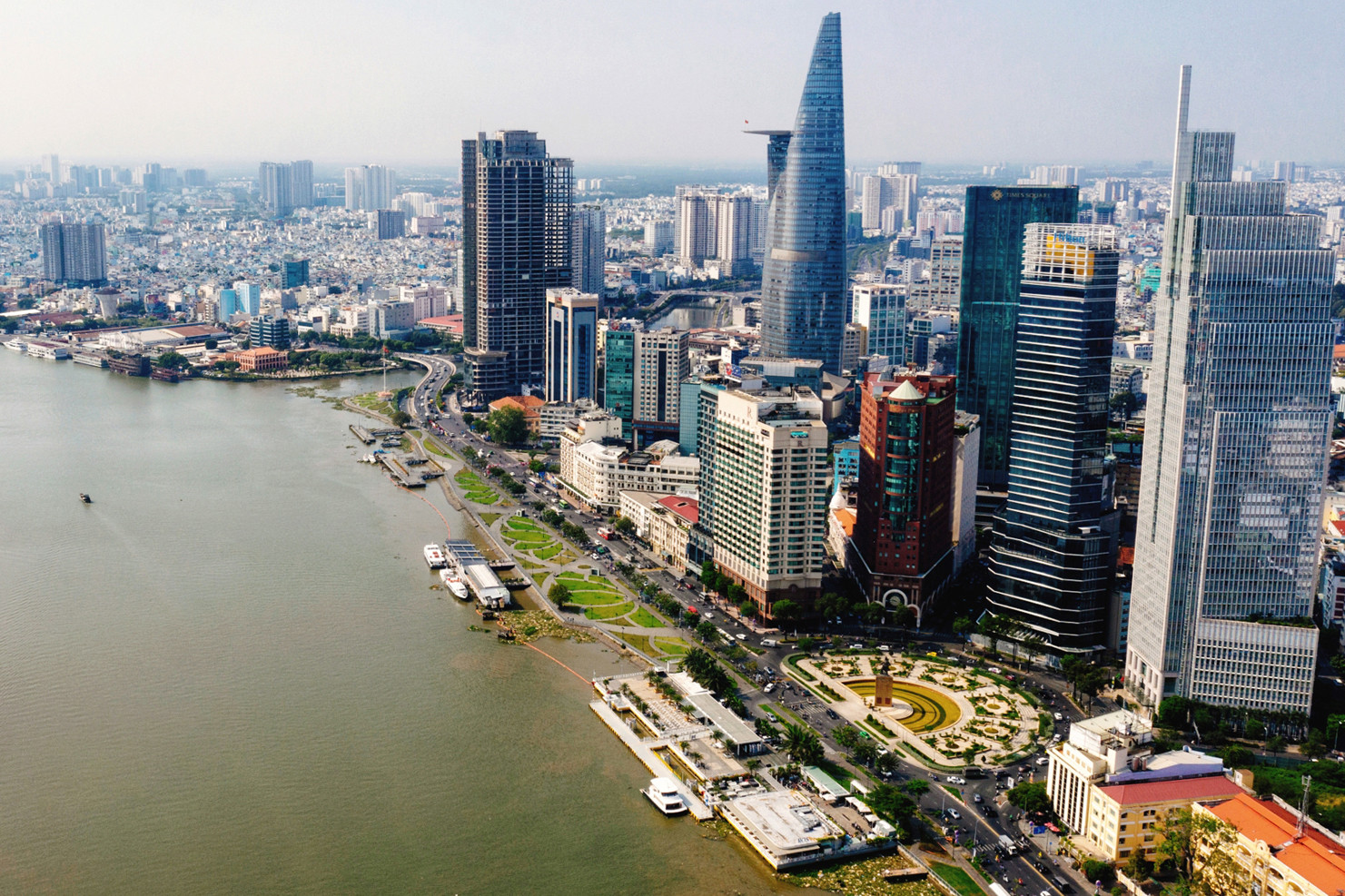

Dr. Tran Dinh Thien: If the market is hindered from developing, the consequence will be that the economy will find it difficult to escape the risk of falling behind. Photo: Hoang Ha
In essence, the application of the market economy helps solve the central problem of the socialist path that Vietnam has chosen. In that sense, the more the market economy is promoted to develop strongly and healthily, the more basis there is to achieve socialist goals. The logic of that relationship is by no means a forced deduction, or as people often say, "trying to trim the foot to fit the shoe". It has been proven by the practice of innovation and development in Vietnam over the past decades. It can be seen that over the past decades, the Vietnamese private economic sector, though small and weak, has been a force that has helped the economy maintain its socialist orientation in a substantial way. For the simple reason, this is the sector that creates the most jobs and income for workers. Creating jobs and income for workers is one of the basic goals of socialism. Please describe with figures: The private economic sector accounts for 50% of GDP, 35% of total budget revenue and creates jobs for 50-60% of the total workforce in our country. So can the state-owned or FDI enterprises do the same?! Saying so, we can see that if the market is hindered from developing, the consequence will be that the economy will fall into a situation where it is difficult to escape the risk of falling behind and difficult to achieve the goals of socialism. Opening up and following the market economy, Vietnam will have the opportunity and conditions to integrate into the world economy. But if we do not integrate with the world, who can we play with and how will we develop?! Internally, we follow the market; and the most important thing of the market economy is the price mechanism, supply - demand, and competition. At the beginning of the Renovation, the State gradually eliminated the ration card system, in essence, the State abandoned the pricing mechanism that the State subjectively and imposed, to transfer the price-determining function to the market. Supply - demand and market competition will determine prices. The price of kerosene, the price of food - the price of the most vital goods, also the most scarce - was transferred to the market mechanism. Thanks to that, the scarce and shortage economy revived, with unexpectedly strong vitality. The economy flourished, the country gradually escaped poverty firmly. But the subsequent process was not always consistent with that logic. In the economy, the phenomenon of using the name of "maintaining the Socialist orientation" to maintain discrimination, to maintain the request-grant mechanism and the cumbersome administrative process system, and the tendency to criminalize economic-civil relations... distorts the competitive environment, causes many bottlenecks and binds the economy, especially for market entities of "Vietnamese nationality", is not uncommon. With such a view, we must now approach to fundamentally and properly resolve the relationship between the two sides of "market" and "orientation", in which the key point is the pricing mechanism of important resources. Land prices and electricity prices are among them, are bottlenecks causing conflicts and many serious consequences, and are major issues of the present time. At the same time, it is necessary to ensure in a substantial way that maintaining the Socialist orientation does not hinder or bind the process of marketization and modernization of the economy. The historical lessons of innovation - thoroughly reforming the market, believing in the motivation and strength of the Vietnamese business sector, especially the business force, still have value in providing approaches, principles of action and the bold spirit of innovation of decades ago. Whether land prices follow the market or are still heavily speculative, whether the land pricing mechanism is based on market principles - with the true land property rights of economic entities guaranteed, with the support of powerful tools such as land rents and land taxes that the state knows how to use intelligently... are issues whose radical solutions have only just been opened. Vietnam has developed "to the ceiling" Sir, cases like SCB, Van Thinh Phat and many large enterprises that have to go to court are making people worried, private enterprises are also a problem...? "In a gourd, it is round, in a tube, it is long" or "What institution, that enterprise". Why do enterprises have such violations? I think the fundamental problem - I must emphasize "fundamental" - lies in the institution.
The historical lessons of innovation - thoroughly reforming the market, believing in the motivation and strength of the Vietnamese business sector - still hold true. Photo: Hoang Ha
We need to continue reforming, abandoning the practice of asking for and granting, and allocating resources according to the market; limiting the licenses of "children", "grandchildren", and "great-grandchildren" who are often exploited and colluded with. In addition, we need mechanisms to ensure publicity, transparency and accountability... The core issue is to deal with the system mechanism. Only by abandoning the system of allocating scarce resources through the "asking - giving" and "allocating" method can we gradually break away from the situation of making things difficult and troublesome for businesses and society to "make a living", and only then can we hope to fundamentally eradicate the problem of corruption and bribery. That is the core of the problem. Therefore, I think the recent statements of the Prime Minister and the General Secretary requesting to limit the criminalization of civil issues and cases, avoid damaging the market economy, increase decentralization, empower all levels of subjects, and strengthen the personal responsibility regime are opening up very bright prospects for the development of a future socialist-oriented market economy. Many people say that Vietnam has reached its development ceiling. Do you agree with this view? Vietnam still has a lot of room for development. As mentioned, the resource markets or the markets of production factors are being "tied up", if they can be opened up, the economy will explode. The space for innovation also needs a new approach, which will help promote the potential capacity of Vietnamese intelligence. The same goes for the national governance system and enterprises, if modernized early, it will create an extremely strong driving force for development. According to the standards of the civilized and progressive world, we will resonate with the strength of the world. Many of us still have the traditional farmer mindset. They look at development not in terms of global competition or competition, but with a long-term vision, looking towards the future. I still say that Vietnam seems to mainly keep a short-term, down-to-earth attitude when competing with the world for development. We still have a heavy tradition of "looking down at the fields" and have not yet truly recognized the market resources - the era, on the basis of changing thinking. We have not completely transcended the traditional land mindset to reach the development mindset of the ocean and digital space - the universe. That is the space - resource - the main driving force of modern development. The immense resources for development are wind, sun, ocean and the digital world, not limited to each fragmented and conflict-filled field.
The economy is preparing for a new stage of development. Photo: Hoang Ha
And fortunately, Vietnam has recognized and joined the race in that spirit. The Government 's approach to the semiconductor industry, to green development, and most recently, the General Secretary's message about the country's future associated with digital transformation, is opening up for the country the prospect of a desirable turnaround. Opportunity for change After the Covid pandemic and the stagnation in the public sector for the past 5 years, do you find the current reality of the people and businesses very compelling? Currently, the domestic sector of Vietnam is facing great difficulties, so difficult that it cannot be ignored, overlooked, or indifferent. The business health charts all show that. But that also means that hope is being compressed. The economy is preparing for a new stage of development. The new dynamics of the economy, the Government's tireless efforts in developing modern connectivity infrastructure, strengthening institutional reform , not simply adjusting and removing the bottlenecks of mechanisms and policies left by the past but also aiming to build an institutional system for a new economy... are sowing confidence in the recovery and rise of the economy. General Secretary and President To Lam requested that there needs to be a unified understanding of the new context that is opening a new era, an era of rising up of the Vietnamese people. Do you agree with this point of view? General Secretary and President To Lam raised the issue very correctly and accurately: this is an opportunity for change, an opportunity to switch to a new way of development. Development thinking and development vision need to be changed. The implication here is probably: what is currently available, even if correct, will still not be enough, and will not guarantee the country's future in the world - the new era. We have achieved many good results but they are not enough to solve current problems, not to mention the demands of the volatile future. Therefore, the innovation process needs to be implemented more thoroughly, according to the commitments in FTAs and international standards, according to the requirements that the digital economy and the green economy pose as vital orders. That is also the key to solving the relationship between "productive forces - production relations" that modern demands.Vietnamnet.vn
Source: https://vietnamnet.vn/viet-nam-con-du-dia-rat-lon-cho-phat-trien-2322197.html


![[Photo] General Secretary To Lam and National Assembly Chairman Tran Thanh Man attend the 80th Anniversary of the Traditional Day of the Vietnamese Inspection Sector](https://vphoto.vietnam.vn/thumb/1200x675/vietnam/resource/IMAGE/2025/11/17/1763356362984_a2-bnd-7940-3561-jpg.webp)






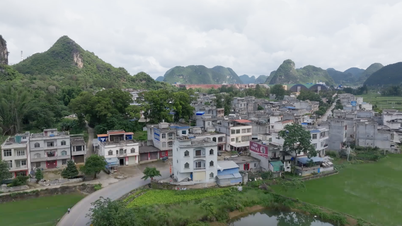











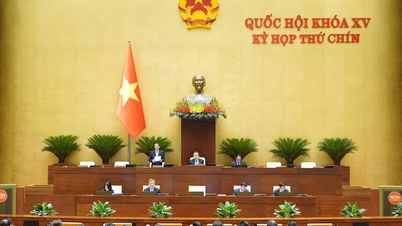


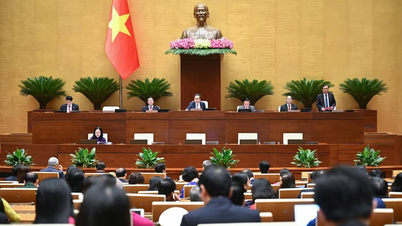
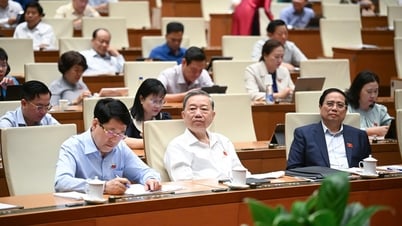
























































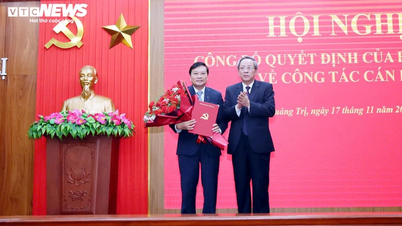
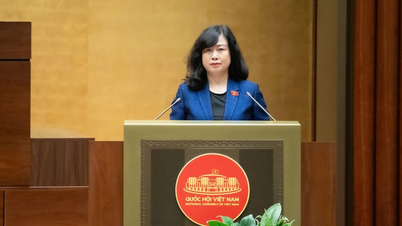































Comment (0)